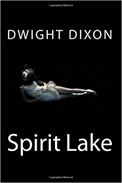
 |
By all appearances, Dan Rice leads the typical American family life. He is a tenured professor at a conservative college, lives near a beautiful lake with his wife and fifteen-year-old son, and has aspirations of finishing a novel that will provide both the respect and financial success he seeks. But looming beneath the surface is a dark desire to release his frustrations over his struggling marriage and unhappiness through rage and violence. Impacting his situation are the terrible headaches he is experiencing. A fainting incident on the college campus leads to an encounter with a female colleague that attracts his attention. Suzanne Lacey is attempting to create a new life for herself after escaping a difficult past and recent allegations of murder following her husband’s death. When she refuses Dan’s advancements, he spirals into a series of brutal acts that erupt into a volatile scheme to capture his prey.
In this gripping, cat-and-mouse crime novel, the author develops a dizzying plot that keeps the reader stunned with each turn. Set against the backdrop of a Northwestern mountain community, the story is shaped by the haunting legend of Spirit Lake and its spellbinding quality that magnetizes the characters and ultimately lures them to their demise. Despite the sinister narrative, the novel quietly addresses the imbalances of society, weighing the disparities that exist between the wealthy, educated public and those toiling to carve out a better existence. In a startling twist that alters the direction of the story, Suzanne and Dan unite on a mission to elude authorities and create an unfathomable tragedy that solidifies their sociopathic behavior. While the tone of the novel is bleak and callous, Dixon crafts multifaceted characters that successfully guide the reader through this absorbing and chilling tale of passion and sin.
RECOMMENDED by the US Review